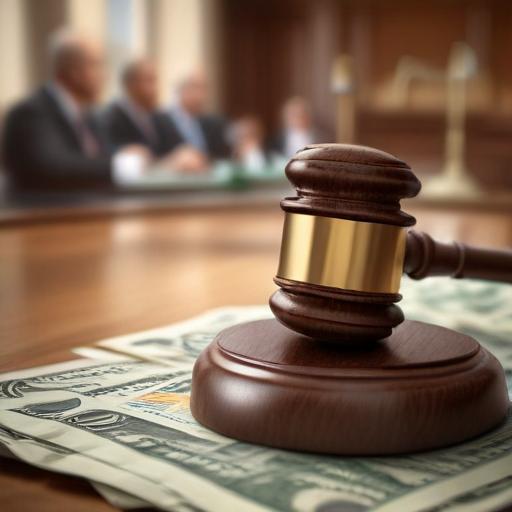Trump targets cashless bail with executive orders to withhold funding and push federal custody
President Donald Trump is calling for a nationwide push to end what’s popularly known as “cashless bail,” arguing that the current system shortchanges public safety and is unfair to people who can’t pay to be released before trial. He has signed executive orders aimed at pressuring districts to keep cash bail in place or face federal funding consequences, and to move applicable defendants in Washington, DC, toward federal pre-trial custody.
What cashless bail means
Cashless bail refers to a shift away from releasing people before trial based on their ability to pay. Instead, reformers want to focus on factors such as public safety, the defendant’s rights, and ensuring defendants return to court. Washington, DC moved away from cash bail in most cases as far back as 1992. In recent years, states including New York, California and Illinois have enacted bail reform laws, as have Alaska and New Jersey under Republican leadership in some cases. Advocates say the change aims to end a two-tier justice system where wealth determines freedom before trial.
Advocates vs. critics
Bail reform supporters argue that someone accused of a crime—pending conviction—shouldn’t be jailed simply because they can’t afford to pay. “The basic idea is fairness—there shouldn’t be two systems of justice, one for the poor and one for the rich,” said Insha Rahman, a Vera Action advocate. Critics, however, say reforms have tied judges’ hands and allowed repeat offenders to be released, creating what some describe as “turnstile justice.” James Gagliano, a former FBI agent, argued that if people are arrested for the same crimes repeatedly and released before paperwork is complete, the system isn’t solving the problem.
How bail works in practice
Typically, after an arrest, a detention hearing determines whether a defendant remains jailed or is released on bail with conditions. Bail often involves a monetary amount that must be posted or paid to secure release; the money is normally returned if the defendant shows up for trial. Non-monetary options like personal recognizance exist, but the system has created an industry around bonds and posted collateral. In the United States, hundreds of thousands are held in local jails before trial, many of whom have not been convicted.
A notorious example
The case of Kalief Browder, a teenager who spent three years at Rikers Island after being unable to pay a $3,000 bail, became a powerful emblem of the system’s potential injustices. Browder’s case, which ended in the charges being dropped but with lasting trauma, helped catalyze broader reform debates. Wealthier defendants have sometimes been able to secure release with money, as illustrated by Harvey Weinstein’s 2018 bail arrangement in a separate case.
Real-world impacts and evidence
Proponents say reform reduces unnecessary pre-trial confinement and its disruption to employment and housing. Critics note concerns about public safety and recidivism. Research on the crime implications of bail reform has produced mixed results. A Brennan Center for Justice analysis found no clear evidence that bail reform directly affected crime rates across 33 cities from 2015 to 2021. Illinois’ experience likewise suggests the impact has been limited; authorities note the changes can complicate pre-trial proceedings without a clear rise in crime.
States and reforms
Various jurisdictions have experimented with cashless bail:
– New Mexico eliminated cash bail in 2016.
– New Jersey and Alaska followed with reforms in 2017 and 2018, respectively.
– New York’s reforms began in 2020, with adjustments over time.
– Illinois started its reform in 2023.
These changes generally aim to deter pre-trial detention for non-violent offenses and rely more on supervision, electronic monitoring, or pre-trial services to ensure appearances in court.
Trump’s executive orders and personal experience with bail
Trump’s orders would withhold federal grant funding from jurisdictions that have “substantially eliminated cash bail” and would enable moving certain detainees toward federal pre-trial custody. He instructed the Attorney General to compile a list of such jurisdictions within 30 days, with funding consequences potentially following. He argued that cashless bail has allowed violent criminals to be released, calling it discriminatory and a threat to public safety.
Trump cited his own experiences with bail in a sequence of cases: he has been released on his own recognizance in New York and in his federal cases in DC and Florida, while in Georgia’s Fulton County case he was required to post a $200,000 bond, covering 10% himself and arranging the rest through a bondsman.
What to watch next
The debate over cashless bail centers on balancing public safety with due process and fairness. Supporters emphasize reducing jail time for the innocent and avoiding wealth-based detention, while opponents warn about the potential for repeat offenses if suspects are not held for certain crimes before trial. With Trump’s executive actions, federal-funding leverage could intensify pressure on jurisdictions to rethink or scrap cashless bail policies. Legal battles, policy adjustments, and local experimentation are likely to continue shaping how pre-trial detention is handled across the country.
Bottom line
The cashless bail debate remains a clash between safeguarding public safety and upholding fairness and due process for those accused but not yet convicted. As the administration pushes for stricter pre-trial detention options, observers will be watching crime trends, court backlogs, and the experiences of states that have redefined bail in the years ahead. Positive outlooks remain possible if reforms reduce unnecessary confinement while preserving safety and the integrity of the judicial process. The ongoing discussion will likely influence both policy and politics at local, state, and federal levels.
